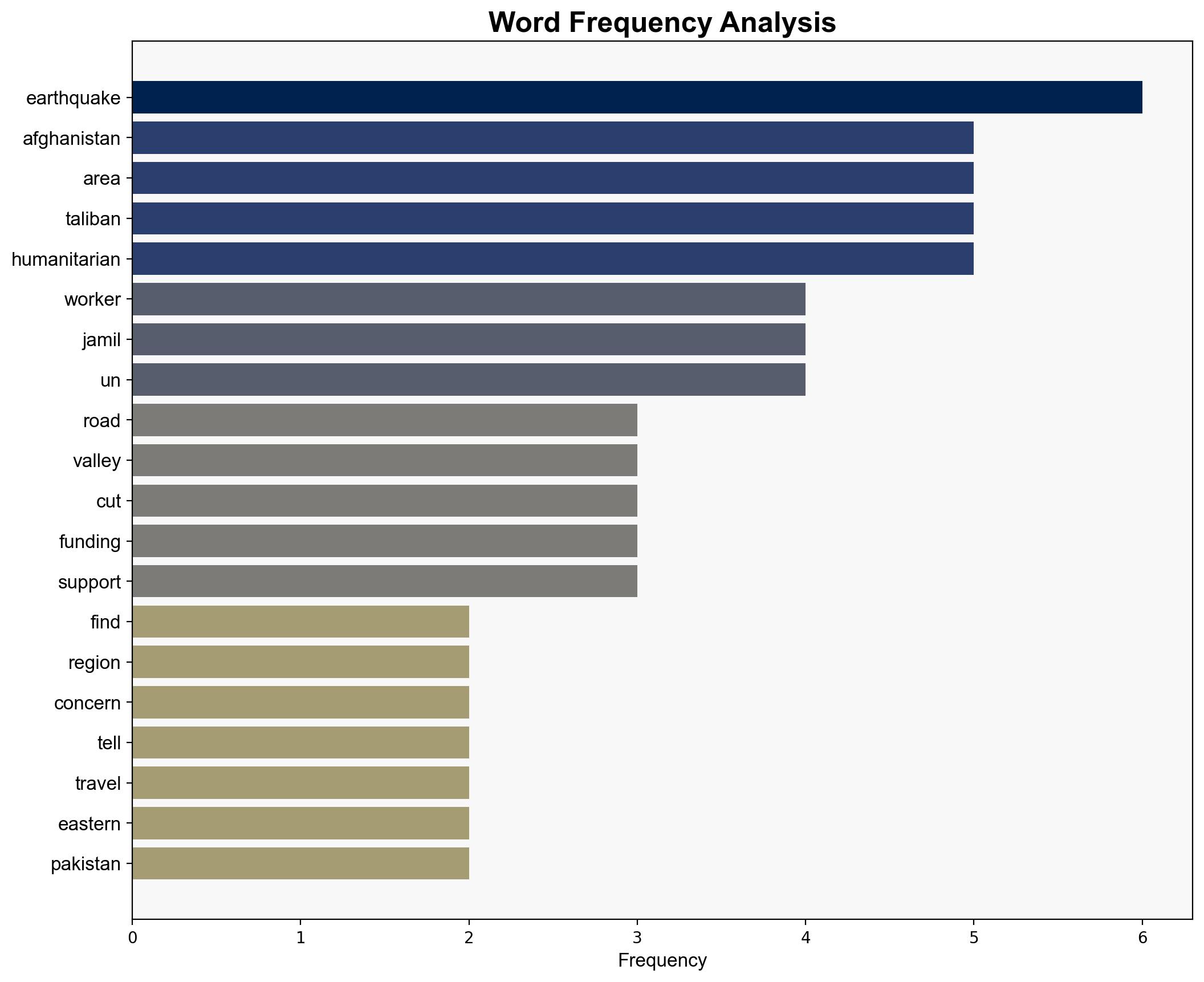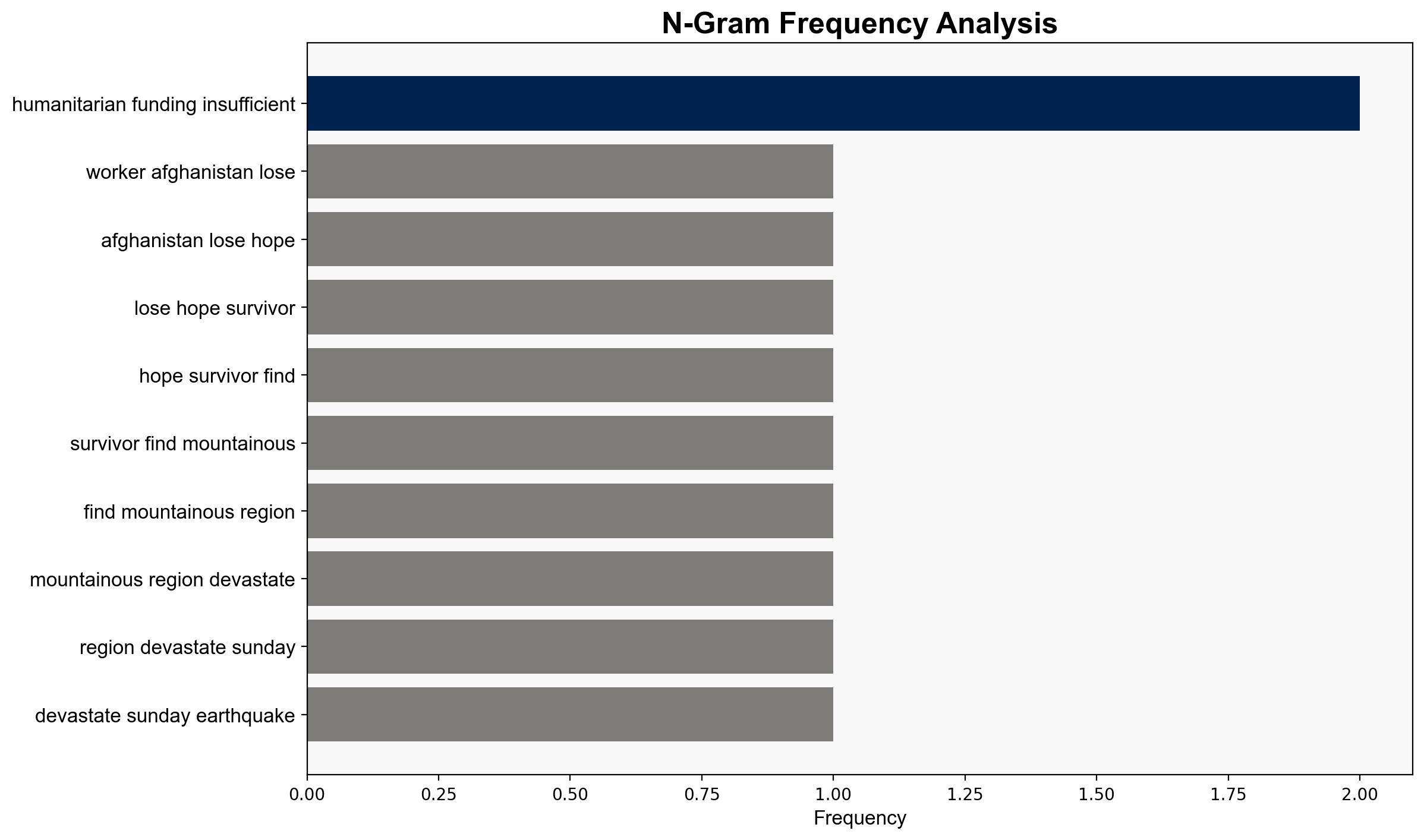Aid workers losing hope in Afghanistan after earthquake – RTE
Published on: 2025-09-02
Intelligence Report: Aid workers losing hope in Afghanistan after earthquake – RTE
1. BLUF (Bottom Line Up Front)
The humanitarian crisis in Afghanistan, exacerbated by a recent earthquake, poses significant challenges to aid delivery and recovery efforts. The most supported hypothesis is that logistical and political barriers will severely limit effective international aid, leading to prolonged suffering and instability. Confidence level: Moderate. Recommended action: Increase diplomatic engagement to facilitate aid delivery and explore alternative routes for humanitarian assistance.
2. Competing Hypotheses
1. **Hypothesis A**: Logistical challenges and political barriers will prevent effective international aid delivery, exacerbating the humanitarian crisis.
2. **Hypothesis B**: Despite logistical and political challenges, international aid efforts will adapt and overcome barriers, providing timely relief to affected populations.
Structured Analytic Technique: Using ACH 2.0, Hypothesis A is better supported due to the current road conditions, inhospitable terrain, and political complexities with the Taliban administration, which have historically hindered aid efforts.
3. Key Assumptions and Red Flags
– **Assumptions**: It is assumed that the Taliban will not significantly alter their stance on international aid, and that current road and weather conditions will persist.
– **Red Flags**: Reports of helicopters struggling to find landing spots suggest potential underreporting of logistical challenges. The lack of sanitation facilities in camps could lead to secondary health crises.
– **Blind Spots**: The potential for regional geopolitical shifts that might affect aid dynamics is not fully explored.
4. Implications and Strategic Risks
– **Cascading Threats**: Prolonged humanitarian crises could lead to increased displacement, regional instability, and potential radicalization.
– **Economic Impact**: Continued instability may deter foreign investment and exacerbate economic decline.
– **Geopolitical Risks**: Strained relations between the Taliban and international entities could lead to reduced cooperation on broader security issues.
5. Recommendations and Outlook
- Engage diplomatically with regional powers to facilitate aid delivery and negotiate access routes.
- Explore partnerships with non-traditional actors who may have better access to affected areas.
- Scenario Projections:
- Best Case: Rapid diplomatic engagement leads to improved aid delivery within weeks.
- Worst Case: Continued barriers result in a protracted crisis, with significant loss of life and regional destabilization.
- Most Likely: Aid delivery improves incrementally, but significant challenges persist, prolonging recovery efforts.
6. Key Individuals and Entities
– Shahzad Jamil: Local director expressing concerns about aid delivery.
– Antonio Guterres: UN Secretary-General calling for increased humanitarian funding.
7. Thematic Tags
national security threats, humanitarian crisis, regional focus, geopolitical dynamics




